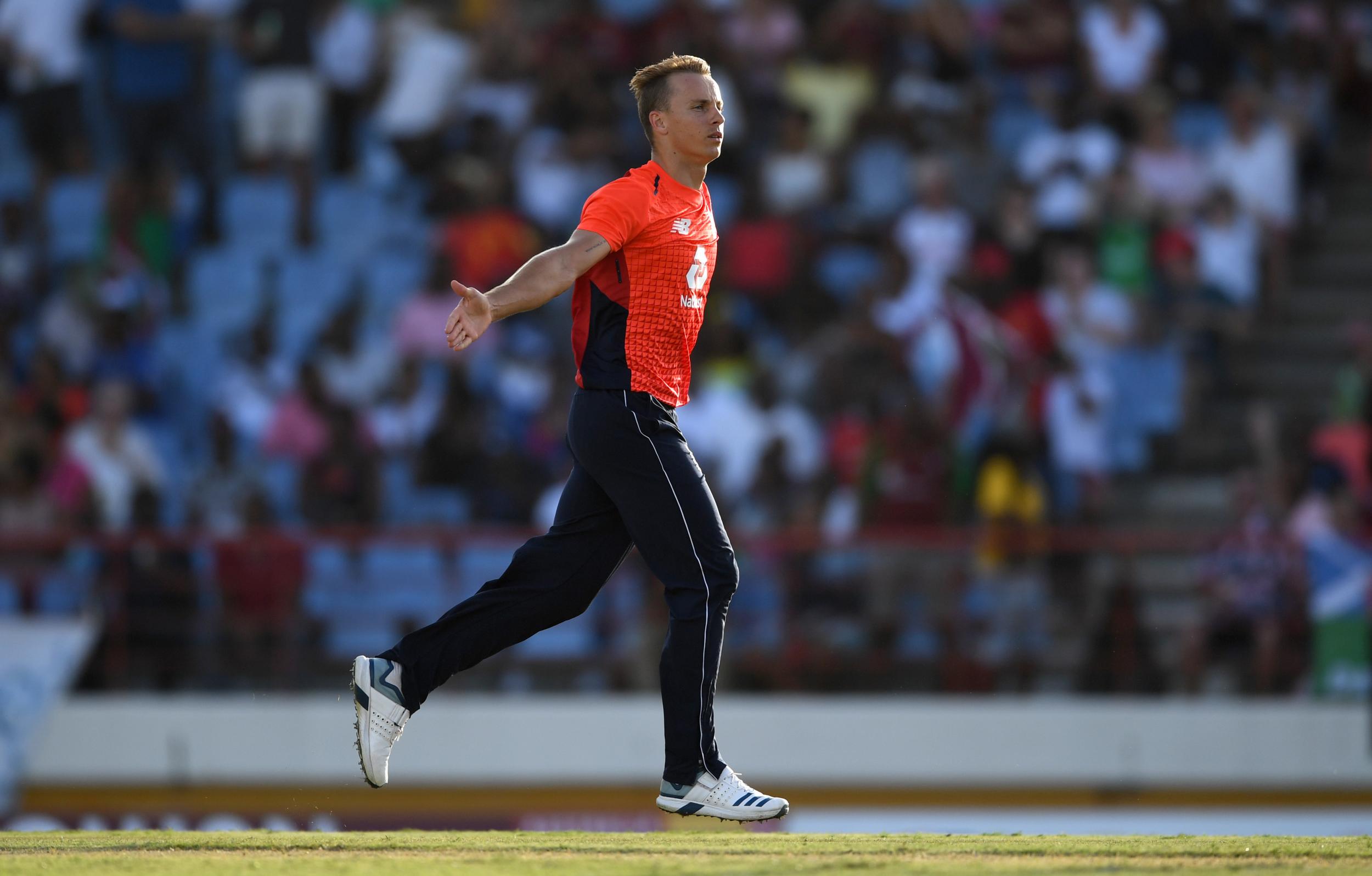England have always had foreign-born cricketers – so why would Jofra Archer have any effect on the team’s ‘culture’?
COLUMN: The loaded language of Archer's sceptics is that of the affronted nativist - the same objections you hear about asylum seekers being assigned council houses or ‘benefit tourists’ claiming free healthcare
So let’s talk about Boyd Rankin. Once Ireland’s Boyd Rankin, then England’s Boyd Rankin, and now - by a process far too arcane and protracted to bore you with here - Ireland’s Boyd Rankin again. These days, Rankin is best known for his role in England’s disastrous 2013-14 Ashes tour, where he was not picked when fit, then picked when injured, and whose participation stretched to several overs of sterile, grimacing medium pace, delivered to a roster of chortling Australian batsmen at the SCG.
Here’s the thing, though. Despite being born in Ireland, playing more than 50 times for Ireland, and only qualifying for England a matter of months earlier, nobody - at least on this side of the Irish Sea - seemed the least bit perturbed at Rankin’s initial selection. Nobody questioned the wisdom of tinkering with a winning side by parachuting in an untried fast bowler at short notice. Nobody raised qualms about whether, ahead of England’s biggest assignment of all, the selection of a quiet farmer from Bready in County Tyrone would disrupt team spirit or affect morale.
It’s a similar story with the dozen or so other naturalised England cricketers of recent years. Nobody queried whether the selection of Gary Ballance for the same tour was “morally right”. Nobody fretted about whether Keaton Jennings would “fit into the team culture”. Nobody cried foul play or affected lavish concern for the player Tom Curran replaced in the England side. Which makes it all the more curious that as Jofra Archer prepares to join up with his new team-mates for the first time this weekend, these somehow appear to be the burning questions.
Archer is 24 years old, and British. It says so on his passport: the only passport he’s ever had. He’s one of the most exciting young cricketers in the world in any format: a hair-raising, seat-wetting, popcorn-hurling Hollywood blockbuster of a player. A thrilling fast bowler. A destructive batsman. The sort of fielder you would pay to watch. You might think, then, that Archer’s promotion to the England squad - just in time for a home World Cup this summer - would be greeted with suitably untrammelled enthusiasm.
Instead, the reaction has been loaded with caveats and regrets, with prevarication and pearl-clutching angst. And indeed, the entire affaire Archer resembles nothing so much as a classic English comedy of manners, in which ridiculous trifles like status and etiquette are elevated to matters of the highest importance, where every utterance is lined with a devastating - and occasionally sinister - subtext.

The problem - albeit, only really a problem if you want it to be - is that Archer was born in Barbados, and spent his entire childhood there. He learned his cricket in the Caribbean, but after being left out of the West Indies squad for the under-19 World Cup in 2014, decided that his international future would lie with the country of his father’s birth: England. This last fact is often conveniently overlooked by those who lament that Archer is not playing for the West Indies, and blame the England and Wales Cricket Board for cruelly scavenging him.
And so, after a seven-year qualification period was sneakily reduced to three in order - you suspect - to get Archer in before the World Cup - here he is, and not everyone is delighted. “Whether someone should just walk in at the drop of a hat because they’re available, whether that’s the right thing, I don’t know,” said all-rounder David Willey, one of the seamers most threatened by Archer’s emergence. “It probably wouldn’t be fair, morally,” said Chris Woakes, when prompted and goaded by an unscrupulous BBC interviewer. “If he was to come in and someone was to miss out, it would be extremely unfortunate.”

Mark Wood, another of England’s existing fast-bowling contingent, had a more colourful analogy, comparing Archer’s selection to Newcastle United’s signing of the Colombian striker Faustino Asprilla in 1996. Here, again, the subtext was unmistakable: Asprilla’s much-heralded arrival was followed by one of the most spectacular collapses in the history of the Premier League. “All of a sudden,” Wood warned, “you can lose the momentum and drop down.”
Naturally, all three also paid warm tributes to Archer’s talent, and stressed they would have no problem with his selection. Equally, though, the register of their reservations was impossible to ignore. The loaded language, the suggestion of queue-jumping, of unfairness, of disruption to an established population: this is, intentional or not, the vernacular of the affronted nativist. They’re the same objections you hear about asylum seekers being assigned council houses or ‘benefit tourists’ claiming free healthcare. Nothing personal, you understand. It's not your fault. But, you know, we have a way of doing things here.

Often, the message is subtler, wrapped and swaddled in layers of well-meaning code. “A huge call,” warned Jonathan Agnew. “Morale and camaraderie is a big part in team performance.” Which feels instinctively unarguable - who doesn’t love morale and camaraderie, after all? - until you begin to ask why Archer is deemed such a grave threat to it. And why no other player, foreign-born or not, is ever subjected to the same standard. (“Deserves his call, clearly a good player,” was Agnew’s snap verdict on Ballance’s Ashes call-up in 2013, in case you’re wondering.)
Equally, it’s worth asking why Michael Vaughan - broadly supportive of Archer - nevertheless feels “there are questions about whether he fits into the team culture”, when Archer has displayed no indication of being anything other than a sound, inspirational team-mate. Or why coach Trevor Bayliss wonders whether Archer will “upset the applecart”. This is, by the way, a one-day team that has fielded 21 different players in the last nine months. Somehow, England’s morale and team culture have miraculously managed to survive the selections of Dom Bess, Tom Curran and Olly Stone unscathed. But no, it’s Archer who’s going to ruin things.

There’s an incendiary word you could posit to describe all this, but I’m not going to use it. All I will point out is that there’s nothing new in English cricketers being sourced from far and wide. The team for the third ever Test match in 1879 featured two players born outside England: Lord Harris (Trinidad) and Leland Hone (Ireland). One in seven male England cricketers was born abroad. It’s a myth that nationality and identity are somehow more fluid and complex these days. England sides have always been diverse, a product not just of our multicultural present but our imperial past. Borders are porous and wealth is unequal and rules are bent, and now Jofra Archer gets to play for England. You can celebrate it or you can castigate it, but that doesn’t change the fact that it just is.
The sadness is that already, Archer clearly senses on some level that he may not be entirely welcome. “I don’t want to step on anyone’s toes,” he said this week, and should England fall short of expectations this summer, be in no doubt who will be made to carry the can. Such is the fate of the outsider, the other, the guy who may play a good game but whose face - for whatever reason - just doesn’t fit. This, like it or not, is what we talk about when we talk about Jofra. You may have got in on a technicality. You may have a right to stay and work. But don’t for a second presume that you’re one of us.
Join our commenting forum
Join thought-provoking conversations, follow other Independent readers and see their replies
Comments
Bookmark popover
Removed from bookmarks